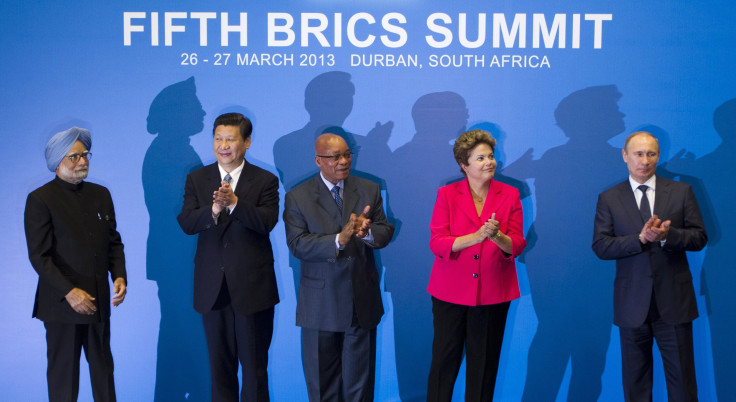Will BRICS Pressure Syria On Humanitarian Aid?

The Syrian government has appealed to a group of the world’s most influential emerging powers for political support as the United States, its allies and other Arab nations increase support for the armed opposition to President Bashar al-Assad.
Last week, Assad addressed a letter to the leaders of Brazil, Russia, India, China and South Africa -- collectively known as BRICS -- calling on them to exert pressure on governments that actively support the opposition.
In particular, Assad referenced sanctions imposed by the U.S., European Union and the Arab League that have economically isolated the Syrian regime.
“You, with all the huge political, economic and cultural weight you represent that seeks to consolidate peace, security and justice in the troubled world of today, are called upon to exert all possible efforts to end the suffering of the Syrian people from the unjust economic sanctions in violation of the international law,” Assad said, according to Syrian state-run media.
He added that the BRICS nations could “play (an) effective role to restrain the excessiveness of countries known for contradicting the U.N. Charter by meddling in other countries' internal affairs and to work for achieving democracy in international relations.”
The BRICS nations have not responded directly to Assad’s letter, but briefly referenced Syria in a statement on Wednesday at the closing of their summit in Durban, South Africa.
The group reaffirmed its support for a solution to the two-year civil war through dialogue between the Syrian government and various opposition groups and maintained its “opposition to any further militarization of the conflict.”
“A Syrian-led political process leading to a transition can be achieved only through broad national dialogue that meets the legitimate aspirations of all sections of Syrian society and respect for Syrian independence, territorial integrity and sovereignty,” the statement read.
This position contrasts with that of the U.S., EU and the Arab League, which have all condemned the Assad government over its handling of the conflict in which at least 70,000 people have been killed since 2011. They have also called for increased support for the Syrian opposition -- which some Arab countries are arming directly.
In acknowledgment of the intensifying violence in Syria, the BRICS called on both sides to grant full access for humanitarian aid into the territories they hold.
“In view of the deterioration of the humanitarian situation in Syria, we call upon all parties to allow and facilitate immediate, safe, full and unimpeded access to humanitarian organizations to all in need of assistance,” it said.
Damascus has prevented aid from reaching opposition-controlled areas, while China and Russia have repeatedly blocked efforts at the Security Council to pressure the Syrian government to open up the entire country to aid.
The BRICS statement indicates a slight shift in China and Russia’s policy toward Syria, but ultimately depends on further concrete action.
“For their Syria statement to have any significance, the BRICS will need to put the screws on Assad to let aid come over the border directly,” wrote Carroll Bogert, deputy executive director for external relations at Human Rights Watch, in a recent commentary.
The Brookings Institution, a Washington foreign policy think-tank, has also called upon the BRICS to pressure the Syrian government on opening up to humanitarian aid, but added that it will likely require U.N. peacekeeping forces on the ground.
“Given the state of emergency on the ground, however, humanitarian cross-border access alone may not be sufficient,” wrote Salman Shaikh, fellow at Brookings' Saban Center for Middle East Policy, in a recent opinion piece.
“In order to protect civilians, guarantee the safe passage of relief organizations as well as refugees attempting to leave the country, there is a growing imperative for the establishment of humanitarian corridors and civilian safe areas along the sensitive borders of Syria,” he added. “Make no mistake, such safe areas will have to be secured and protected by all means possible.”
The BRICS powers are certainly in a position to pressure Assad in this respect, but would not want to appear that they themselves are capitulating to U.S. and European pressure.
At the moment, the most they are willing to ask for is the government to let aid through, which could mark the beginning of a easing of the violence.
© Copyright IBTimes 2024. All rights reserved.





















